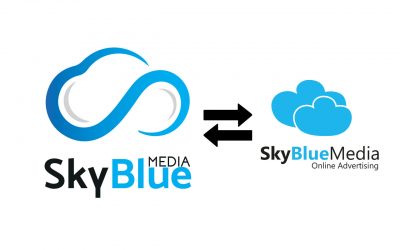Introduction
Due to its role in providing us with everything ranging from tutorials, mindless entertainment, free education, all the latest music, and much more, most of us can find the icon for YouTube on our phone’s menu without even having to look.
In fact, many of us sign up to get notified directly when a new video appears that might interest us, showing just how much YouTube has become a part of our digital lives.
But beyond knowing its popular, free, and international, not too many people know just how influential YouTube is, nor do they know how it came to be the behemoth it is today.
Below you will find some facts and figures about YouTube that will help demonstrate how much of an impact this social video site has had on our culture and society, and it will make you think a little bit more about the massive community that exists behind the website we all know and love so much.
1. YouTube Was Originally Designed to Be a Dating Site
For most of us, YouTube just appeared on the internet one day, and we simply started using it. But that YouTube launched the way it did actually represents a pretty big shift in the original purpose of the site.
Most people don’t know the original concept for the site was for it to be a dating platform.
The idea was that people would send in videos of themselves, describing who they were, their interests, likes, dislikes, etc., and then viewers who shared those interests could respond with a video of their own.
However, shortly after launching this idea, co-founders Jawed Karim, Steve Chen, and Chad Hurley found out that people didn’t really want to upload videos of themselves for a dating website. It was too personal, and, perhaps, just a little too creepy for most singles’ tastes. The slogan they invented, “Tune in, Hook up,” probably didn’t help things much either.
To get people into the idea, Karim, Chen, and Hurley went to Craigslist to try and find people to post videos (a move even they know was questionable), and they even offered women $20 if they loaded up a video. But practically no one participated, calling into question the viability of the website these three had begun building.
Knowing they were onto something but realizing dating wasn’t the answer, the three co-founders decided to switch the focus of the site so that anyone could upload a video to the internet. In removing these restrictions, people became more interested.
The first video, “Me at the Zoo,” which was posted by Karim, went up in 2005, and from there, the site quickly took off and became the internet institution it is today.
2. PayPal Indirectly Helped Fund YouTube From the Start
This fact can be misleading. PayPal didn’t have anything to do with the start of YouTube, at least not directly.
Instead, PayPal’s role was to employ the three people – Jawed Karim, Steve Chen, and Chad Hurley – who would later go on to form YouTube.
Part of the site’s seed money came from the bonuses PayPal paid out to these three, and instead of using that money to put in a pool at their house or go on vacation, they put it into the business. Soon thereafter, the site took off and became one of the most visited and profitable sites in the world.
Just think – if these three people desperately needed renovations on their home, or if they’d been itching to take a sabbatical and travel the world, YouTube as we know it today may have never come into existence.
What a terrible world that would be.
3. Google Bought YouTube for $1.65 billion Just a Year and a Half After it Launched
For some, the part of this fact that falls into the “things you didn’t know” category might be that YouTube is not an independently run company. Instead, it forms part of the conglomerate Alphabet, which is made up of Google and some 200 other smaller companies. Considering how powerful both Google and YouTube are on the internet, it should not be much of a surprise that Alphabet is one of the most valuable companies in the world. Take a look at how things have gone for the company over the past decade or so:

The company’s value has more than doubled in less than five years!
But for those who already knew about the partnership between YouTube and Google, you might be intrigued to know that it was bought by Google for a whopping $1.65 billion just 18 months after it first launched on the web.
This just shows how ready the world was for streaming videos to become a part of their lives. The rise of Netflix, which also took place at around the same time – c. 2007 – demonstrates even further what was missing from the digital world in the early 2000s.
For the founders of YouTube, it’s hard to imagine a better scenario. They went from being PayPal employees who used their bonuses to launch the site to being multi-millionaires in a matter of just a few short years. Lucky them!
4. YouTube is a More Popular Search Engine than Bing, Yahoo!, and Ask
There is a bit of debate as to whether or not YouTube is a search engine or a social media site. Those who consider it a search engine use the fact that one must search for content to watch it as an argument to support their position, but advocates of it being a social media site point to the site’s dependence on user-generated content as a means for classifying it in the same category as sites such as Facebook and Instagram.
But let’s leave this debate aside for a moment and just pretend YouTube is a search engine, because, if this were the case, it would be the second most popular search engine in the world, behind only, you guessed it, Google.
This means the site’s parent company, Alphabet, possesses the world’s two most popular search engines. Not a bad spot to be in.
Of course, if you choose to not consider YouTube a search engine and prefer to think of it as a social media site, this doesn’t take away from its considerable reach in today’s society.
According to the Alexa rankings of websites around the world, Google and YouTube are the two most-visited. So, no matter which way you slice it, Alphabet claims to top two spots on the web.
5. There Are 98 Different Versions of YouTube
Part of the reason YouTube has been able to reach the level it’s at today is due to its global appeal. People can upload videos from anywhere in the world, and they can attract viewers from all over, as well.
Recognizing this as an important part of the site’s success, the folks at YouTube responded by creating regional versions of YouTube. These country-specific editions of YouTube make it easier for people to find content more relevant to them. It will prioritize content made in a certain language and makes it easier for YouTube content creators to spread their reach within the audiences most likely to respond to them.
As of writing, there are 98 different versions of YouTube available all around the world.
6. YouTube is the Frequent Target of Censorship Attempts
It doesn’t take long to realize that YouTube has the potential to be a vehicle for social change. Anyone can post a video about anything, and pretty much anyone can watch it. But while most of us see this as one of the characteristics of YouTube that make it so valuable, there are some people out there who see this as a threat, specifically those in power who have a vested interest in maintaining the status quo and limiting the discussions going on that question the current order of things.
As a result of this, YouTube is often one of the first sites oppressive governments will try to shut down in an attempt to stymie political dissent. China is one of the leaders of this movement, and they have also taken steps to block Facebook and Google. However, Germany, which is typically regarded as a liberal country that emphasizes personal freedoms, has been caught banning content, although a lot of this content was blocked because it incited hate, often sympathetic to Nazis, or because it broke copyright laws. But still, this is surprising.
To make things more interesting, Saudi Arabia, which blocks access to almost all social media sites, controls the content published on TV and still has laws in place that make it difficult for women to leave the house without their husband’s permission, allows unlimited access to YouTube, which is part of the reason why Saudi Arabia is one of the countries that uses YouTube the most.
It certainly is a strange world we live in.
7. More People Watch YouTube Than Cable
Over the past ten to twenty years, the price of cable has increased at a rate that far exceeds the rate of inflation, making it disproportionately expensive for most people. In response, a movement has begun known as “cord-cutting” in which people drop cable in favor of online streaming.
There is some debate as to whether or not this is cheaper – there are now multiple streaming services, all of which charge you, on top of the rising cost of high-speed internet – but it certainly helps disgruntled cable customers, of which there are many, feel good to say adios to the cable companies after so many years of being raked over the coals.
Nowadays, cord-cutting is on the rise, and YouTube is playing a role in this. YouTube has a considerably larger reach than cable, which is not good news for the telecommunications companies. Only time will tell if this trend will mean the end of cable TV as we know it.
8. There are 57,000 Years’ Worth of Content on YouTube
So, you’ve decided you want to make a splash on social media by sitting down and watching all the content published on YouTube. You’ll post about it, blog about it, and contact the Guinness Book of World Records to generate some publicity.
Not so fast.
To do this, you would need to live at least 57,000 years, and that’s assuming no one uploads a single video between now and when you finish watching, which isn’t likely.
This essentially means if you sat down now to watch all the content out there, and somehow managed to secure your immortality, you would likely never manage to finish watching all the content that’s out there.
We all knew there was a lot of content, but how many of us knew there was that much?
9. 20 Percent of Videos Are Switched Off Within 10 Seconds
There’s been a lot of talk in recent years about how our smartphones and other connected devices are shortening our attention spans, and typical activity on YouTube seems to back this up. Overall, we turn off just around one-quarter of all videos we watch on YouTube before they reach the ten-second mark.
There are a lot of reasons for this. For example, you may have clicked the wrong link but a lot of it has to do with first impressions. If we’re not impressed right away, or we think the video we’ve chosen to play isn’t going to be good, we click off it without giving it a second thought.
10. 45 Percent of People Use YouTube Every Day
According to a study by Pew, of the people who use YouTube, nearly half of them log on to watch a video at least once per day. And another third log on at least once a week. This type of usage stacks up with that of other popular social media sites, but people generally use Facebook, Instagram, and SnapChat more regularly, with between 60 and 75 percent of people using it every day.
11. We Watch About 5 billion Videos Per Day
This number is just astronomical. The entire world’s population is only about 7 billion people. This means almost everyone on the planet old enough to use the internet is watching at least one YouTube video per day.
Of course, this isn’t actually what’s happening. Instead, it’s more likely users are watching multiple videos in a day. But the fact that so many videos get watched each and every day shows just how deeply ingrained YouTube is in our digital lives.
12. YouTube Generates More than $11 Billion Per Year in Ad Revenue
It’s been a few years since YouTube first introduced advertising, and while it’s pretty annoying for us as users, these ads are what keep the company going, allowing it to exists and continue as a platform where people can upload and share their homemade video content.
In total, YouTube generates more than $11 billion in net advertising revenue. Gross numbers are much larger.
One of the reasons it can earn so much cash for its parent company Alphabet is because YouTube, by its very nature, knows a lot about you. It keeps track of all the videos you watch, the subscriptions you keep, and the content you share, and then it displays ads that are highly relevant to you.
This increases the likelihood you click on an advertisement, which the company who paid for it hopes leads to a sale or sign-up or whatever they’re after.
Think this doesn’t work? Think again. YouTube’s ad revenue has been growing year over year, and there’s really no end in sight:

13. YouTube is Valued at More than $150 Billion
Although YouTube does not exist as an independent entity because of its association with Alphabet, it’s difficult to get an accurate number on the company’s market valuation. However, judging by the revenue it brings in as well as its massive following, it’s safe to say YouTube is a pretty valuable company.
Most estimates suggest that YouTube, if it were to stand alone, would be worth between $130 and $180 billion.
To give you an idea, that would still make it one of the world’s most valuable brands. This just goes to show you how powerful Alphabet is; it controls both YouTube and Google.
14. YouTube Has Around 2 Billion Monthly Active Users
If we expand our parameters a bit and discuss the amount of traffic heading to YouTube every month, we find there are around 2 billion monthly active users. This is up considerably from when the site first launched – as would be expected – mainly because of the site’s popularity around the world. Take a look at how things have grown over the years:

Looking at this, you might be thinking things are slowing down for YouTube. And while in one sense they are, what we’re really seeing is market saturation. At the moment, there are only about 4 billion people in the world with access to the internet. Half of them use YouTube.
It’s impossible to know when YouTube will stop attracting visitors, but with large swaths of the world’s population still awaiting reliable internet access – primarily in the ever-expanding Asian and African markets – we can expect YouTube to continue to grow.
To think it can actually be bigger than it is already is a slightly terrifying thought. But it’s also exciting to see how much more room this platform still has to grow.
Conclusion
So, the next time you go to watch a video on YouTube, know that you’re not just making use of a convenient platform that makes it easy to upload, share, and watch videos created by regular people just like us from all around the world.
Instead, be aware of the fact that you are engaging with a website that has infiltrated the deepest parts of our society and changed it forever. Know that you are accessing a platform that started as a dating website and quickly grew to become one of the most popular and most-visited pages that exist on the web. In short, when you watch a video on YouTube, know that you are participating in a truly global movement that is certain to keep changing the world more than it already has.
All credits of this article go to Broadbandsearch, as it was originally published on their website here.





0 Comments